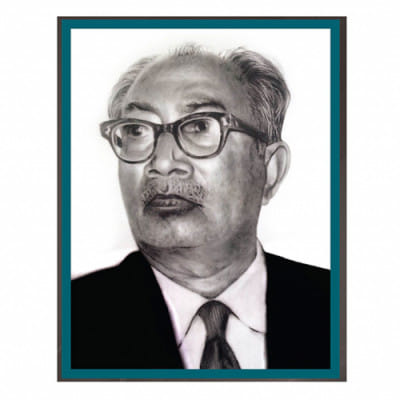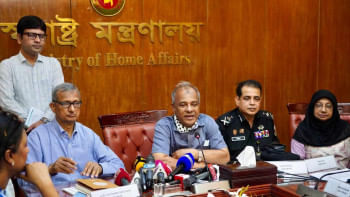Faiz Ahmed: A visionary labour lawyer and leader of undivided Pakistan

History often has a way of challenging our biases towards our present. Perhaps the one thing common to humans of all generations is our steadfast belief that our own time, unlike any other time in the past, is the most developed, the most inspiring. A dip into the archives, into memories and oral histories is an exercise in humility—they remind us of the fact that all that remains to be done can only be achieved with a clear-sighted knowledge of the events of the past.
Faiz Ahmed (born in 1902), who passed away on March 2, 1974, was one such figure in the history of divided Pakistan's labour rights movement whose contributions, over the passage of time, have slipped through the cracks of collective memory. With passion and sharp farsightedness, Faiz Ahmed had begun advocating against capitalist British forces for the rights of the Pakistani working classes from early in his career in law. Between 1950 and 1965, he was the only Bengali Muslim to be elected as a representative of Pakistan at the International Labour Organisation (ILO) in Geneva, where he first travelled in 1945 to bring global attention to the absence of labour rights for Pakistan's maritime workers.
Born along the coast of Chattogram in the Shaherkhali village of Mirasharai, Ahmed grew up as the only son of Amena Khatun and ship captain Abdul Hakim. He completed his SSC and college in Chattogram and moved to Kolkata for higher studies after the demise of his mother. Under the guidance of Advocate Badiur Rahman, who would become his father-in-law, Ahmed completed his LLB from Kolkata University and settled in Kolkata to begin practicing law. It was while serving as a lawyer at the Kolkata High Court that he noticed an entire culture of injustices—workers being laid off illegally, their inhumane working conditions, lack of job security, lack of compensation for injured and handicapped workers, and the absence of any legislation to monitor the power dynamics between workers and employers.
The maritime workers of Bengal—labourers who worked in the ships charting both domestic and overseas journeys—had no job security or labour laws to protect their interests at the time. Crewmen who worked on international routes were often forced to serve in war ships, but were not given any compensation for the injuries and damages they suffered. As a result, the maritime workers collectively boycotted British ship owners, who in turn filed cases against the legitimacy of their employment.
Because these patterns were hardly unique to this particular occupation, protests started brewing in the backdrop, drawing in nearly two lakh of the region's motor vehicle workers; labourers from across greater Bengal and Assam formed the East Bengal Union and the All India Seamen's Association, and by 1935, transport workers across the region had joined together to demand labour rights, bringing operations in trade ports to a halt. Soon, the protests began spilling onto other regions.
Faiz Ahmed, who by then had started working for the rights of sailors and crewmen under the guidance of Sher-E-Bangla AK Fazlul Haq and had served as General Secretary of the All India Seamen's Association, represented the naval workers against their British employers in court along with AK Fazlul Haq and Shaheed Suhrawardy. The British ship owners lost the case, and for the first time, naval workers of Bengal won the rights to stable jobs, fixed wages, and compensation for damage and injuries, bound by a legal framework. After the Partition of India in 1947, Faiz Ahmed was posted in East Pakistan's Narayanganj, a centre of cloth and yarn mills and naval workers' activities, where he established the East Bengal Labour Federation.
In 1950, Ahmed once again travelled to the ILO Convention in Geneva, where he urged the need for land reform in East Pakistan. "Some 90 percent of our people are suffering from the curse of poverty, disease and illiteracy," he stated during his speech on the morning of June 16, 1950, according to a report extracted from the ILO archives. "With the increase in birth rate, the conditions are likely to be worse. If we sincerely believe that poverty in one region is a menace to the peace and prosperity of other regions of the world, then let us [...] employ all our resources in raising the Asian masses, which constitute half the population of the world [...]".
Ahmed advocated for the freedom of trade union workers held up in detention centres, for the representation of workers whose states are hesitant to dispatch delegates to the ILO, and for the minimum wages of agricultural workers who had been rendered vulnerable by the overturning of the feudal system. Asia would no longer be dragged as pawns into any more wars to support the political dreams of the West, Ahmed stated, and the ILO must engage directly with workers' organisations in Asia to safeguard their interests. "The Constitution of the ILO should be amended, if necessary, so as to achieve the above results," he said.
As Iftikhar Ahmed notes in his PhD dissertation, "Faiz Ahmed: A Man of Vision and International Statesmanship", the ILO and UN responded by dispatching a fact-finding and reconciliation mission, which eventually led to the ratification of the ILO Convention No 87, Freedom of Association, and Convention No 98, the right to collective bargaining.
A host of such professional victories—which were deeply personal to Faiz Ahmed—mark his career committed to ensuring the dignity of the workers of his countrymen. A book on his life and work is forthcoming from the Bangla Academy, which is being compiled by the illustrious children he has left behind—his eldest son Golam Mostafa, who was Director of Photography at BTV and currently teaches photography at universities in Dhaka, Farida Hossain, Ekushey Padak-winning poet and novelist, and his younger daughters Hasina Karim and Hameeda Rahman.
That these achievements are not well-remembered now is a testament to the cloying need for more research and historical archives in Bangladesh, which can document not only the larger narratives that we are already familiar with, but these vital but forgotten chapters of our subcontinent's history.
Sarah Anjum Bari is editor, Daily Star Books. Reach her at [email protected] or @wordsinteal on Instagram and Twitter.

 For all latest news, follow The Daily Star's Google News channel.
For all latest news, follow The Daily Star's Google News channel. 



Comments